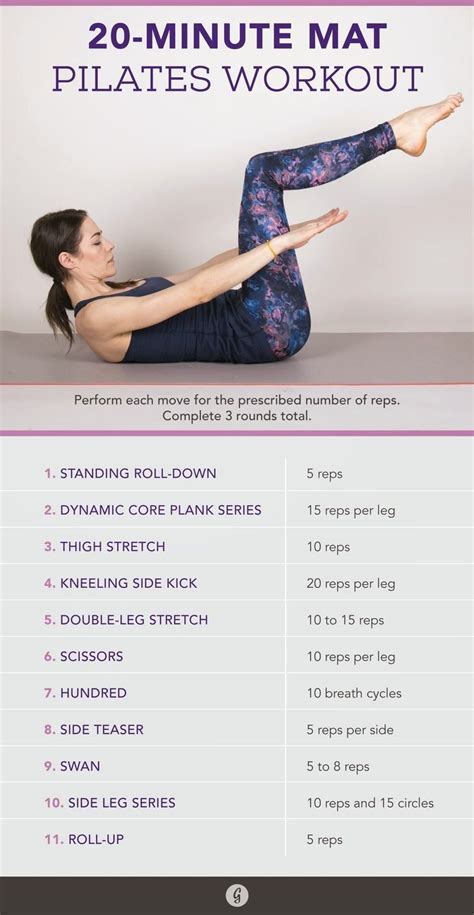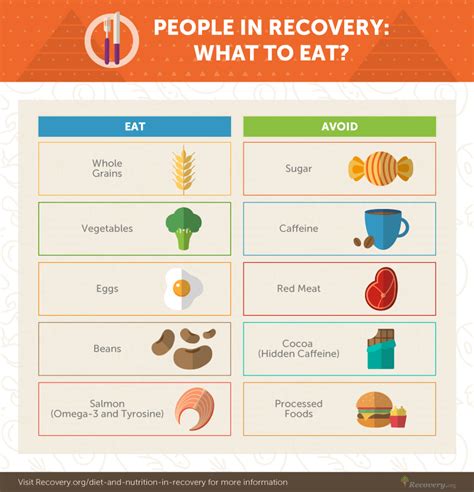Intro
High intensity workouts have become increasingly popular in recent years, and for good reason. These workouts offer a wide range of benefits, from improved cardiovascular health to increased muscle mass and strength. Whether you're a seasoned athlete or just starting out on your fitness journey, high intensity workouts can be a great way to challenge yourself and achieve your goals. In this article, we'll explore seven ways that high intensity workouts can benefit your body and mind.
High intensity workouts are designed to push your body to its limits, forcing you to work at maximum capacity for short periods of time. This can be achieved through a variety of exercises, including sprinting, weightlifting, and burpees. By incorporating high intensity workouts into your routine, you can improve your overall fitness and athleticism, as well as boost your metabolism and burn calories more efficiently. Additionally, high intensity workouts can be modified to suit different fitness levels, making them accessible to everyone from beginners to advanced athletes.
One of the key benefits of high intensity workouts is their ability to improve cardiovascular health. By pushing your heart rate up and down repeatedly, you can improve your heart's ability to pump blood efficiently, reducing your risk of heart disease and other cardiovascular conditions. High intensity workouts can also help to improve your muscular endurance, allowing you to perform daily tasks with more energy and efficiency. Furthermore, the mental challenge of high intensity workouts can help to improve your focus and discipline, translating to other areas of your life.
Benefits of High Intensity Workouts

High intensity workouts offer a wide range of benefits, from improved physical health to increased mental toughness. Some of the key benefits of high intensity workouts include:
- Improved cardiovascular health
- Increased muscular endurance
- Enhanced metabolic function
- Improved mental focus and discipline
- Increased calorie burn
- Improved overall athleticism
Types of High Intensity Workouts
High intensity workouts can take many forms, from traditional exercises like sprinting and weightlifting to more modern workouts like CrossFit and HIIT (High Intensity Interval Training). Some popular types of high intensity workouts include: * Sprint intervals: alternating between periods of high intensity sprinting and active recovery * Weightlifting: lifting heavy weights for low numbers of repetitions * Burpees: a full-body exercise that combines a squat, push-up, and jump * Box jumps: jumping up onto a box or bench, then stepping back down * Kettlebell swings: swinging a heavy kettlebell back between your legs, then up to chest heightHow to Get Started with High Intensity Workouts

Getting started with high intensity workouts can be intimidating, especially if you're new to fitness or haven't worked out in a while. However, with a few simple steps, you can begin to incorporate high intensity workouts into your routine and start seeing results. Here are a few tips to get you started:
- Start slow: begin with lower intensity workouts and gradually increase the intensity as you become more comfortable
- Find a workout buddy: having someone to hold you accountable and provide support can make a big difference
- Invest in proper equipment: depending on the type of workout you're doing, you may need to invest in equipment like a good pair of shoes or a kettlebell
- Listen to your body: rest and recovery are just as important as the workout itself, so make sure to listen to your body and take rest days as needed
Common Mistakes to Avoid
While high intensity workouts can be incredibly beneficial, there are also some common mistakes to avoid. Some of the most common mistakes include: * Overdoing it: high intensity workouts can be tough on your body, so make sure to start slow and gradually increase the intensity * Not warming up: failing to warm up properly can increase your risk of injury, so make sure to take the time to stretch and warm up before your workout * Not cooling down: cooling down after your workout can help to reduce muscle soreness and improve recovery, so make sure to take the time to stretch and cool down after your workout * Not listening to your body: rest and recovery are just as important as the workout itself, so make sure to listen to your body and take rest days as neededSample High Intensity Workout Routine

Here's an example of a high intensity workout routine:
- Warm up with 5-10 minutes of light cardio and stretching
- Sprint intervals: 30 seconds of sprinting followed by 30 seconds of active recovery, repeat for 15-20 minutes
- Burpees: 3 sets of 10 reps, rest for 60-90 seconds between sets
- Box jumps: 3 sets of 10 reps, rest for 60-90 seconds between sets
- Cool down with 5-10 minutes of stretching and foam rolling
Modifying High Intensity Workouts for Different Fitness Levels
High intensity workouts can be modified to suit different fitness levels, making them accessible to everyone from beginners to advanced athletes. Some ways to modify high intensity workouts include: * Reducing the intensity: if you're just starting out, you can reduce the intensity of the workout by decreasing the weight, reps, or sets * Increasing the rest time: if you need more time to recover between sets, you can increase the rest time to 2-3 minutes * Changing the exercises: if you're finding certain exercises too challenging, you can swap them out for easier alternatives * Adding more volume: if you're finding the workout too easy, you can add more volume by increasing the number of sets and repsNutrition and Recovery for High Intensity Workouts

Proper nutrition and recovery are crucial for high intensity workouts, as they can help to support muscle growth and repair, as well as reduce muscle soreness and improve overall performance. Some tips for nutrition and recovery include:
- Eating a balanced diet: focus on whole, unprocessed foods like lean proteins, complex carbohydrates, and healthy fats
- Staying hydrated: aim to drink at least 8-10 glasses of water per day, and more if you're engaging in intense physical activity
- Getting enough sleep: aim for 7-9 hours of sleep per night to help your body recover from the physical demands of high intensity workouts
- Using supplements: certain supplements like protein powder and creatine can help to support muscle growth and recovery
Common Supplements for High Intensity Workouts
Some common supplements for high intensity workouts include: * Protein powder: can help to support muscle growth and repair * Creatine: can help to increase energy and endurance * Branched-Chain Amino Acids (BCAAs): can help to reduce muscle soreness and improve recovery * Beta-Alanine: can help to increase muscle carnosine levels, delaying the onset of fatigueMental Preparation for High Intensity Workouts

Mental preparation is just as important as physical preparation when it comes to high intensity workouts. Some tips for mental preparation include:
- Setting clear goals: define what you want to achieve with your high intensity workouts, and create a plan to get there
- Creating a positive mindset: focus on positive self-talk and visualization to help you stay motivated and focused
- Developing a pre-workout routine: establish a consistent pre-workout routine to help you get in the right mindset
- Learning to manage stress: high intensity workouts can be stressful, so it's essential to learn how to manage stress and stay focused under pressure
Overcoming Common Mental Barriers
Some common mental barriers to high intensity workouts include: * Fear of failure: fear of not being able to complete the workout or not meeting your goals * Self-doubt: doubting your ability to complete the workout or achieve your goals * Lack of motivation: struggling to find the motivation to start or continue with your high intensity workouts * Fear of injury: fear of getting injured during the workoutConclusion and Next Steps

In conclusion, high intensity workouts can be a great way to improve your physical and mental health, increase your athleticism, and boost your overall fitness. By incorporating high intensity workouts into your routine, you can experience a wide range of benefits, from improved cardiovascular health to increased muscular endurance. Remember to start slow, listen to your body, and focus on proper nutrition and recovery to get the most out of your high intensity workouts.
We encourage you to share your thoughts and experiences with high intensity workouts in the comments below. Have you tried high intensity workouts before? What were your results? Do you have any tips or advice for someone just starting out? Let us know, and don't forget to share this article with your friends and family who may be interested in learning more about high intensity workouts.
What are the benefits of high intensity workouts?
+High intensity workouts offer a wide range of benefits, including improved cardiovascular health, increased muscular endurance, enhanced metabolic function, and improved mental focus and discipline.
How do I get started with high intensity workouts?
+To get started with high intensity workouts, start by finding a workout routine that suits your fitness level and goals, and gradually increase the intensity as you become more comfortable. It's also essential to listen to your body and take rest days as needed.
What are some common mistakes to avoid when doing high intensity workouts?
+Some common mistakes to avoid when doing high intensity workouts include overdoing it, not warming up or cooling down, and not listening to your body. It's also essential to focus on proper nutrition and recovery to support muscle growth and repair.
How can I modify high intensity workouts to suit my fitness level?
+High intensity workouts can be modified to suit different fitness levels by reducing the intensity, increasing the rest time, changing the exercises, or adding more volume. It's essential to listen to your body and adjust the workout routine accordingly.
What are some common supplements for high intensity workouts?
+Some common supplements for high intensity workouts include protein powder, creatine, branched-chain amino acids (BCAAs), and beta-alanine. However, it's essential to consult with a healthcare professional before adding any supplements to your routine.
